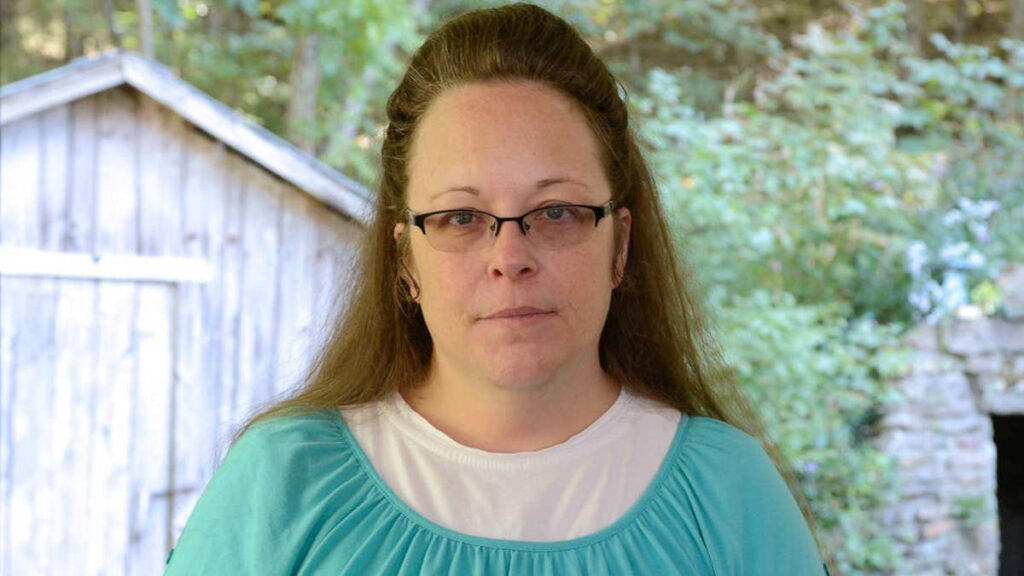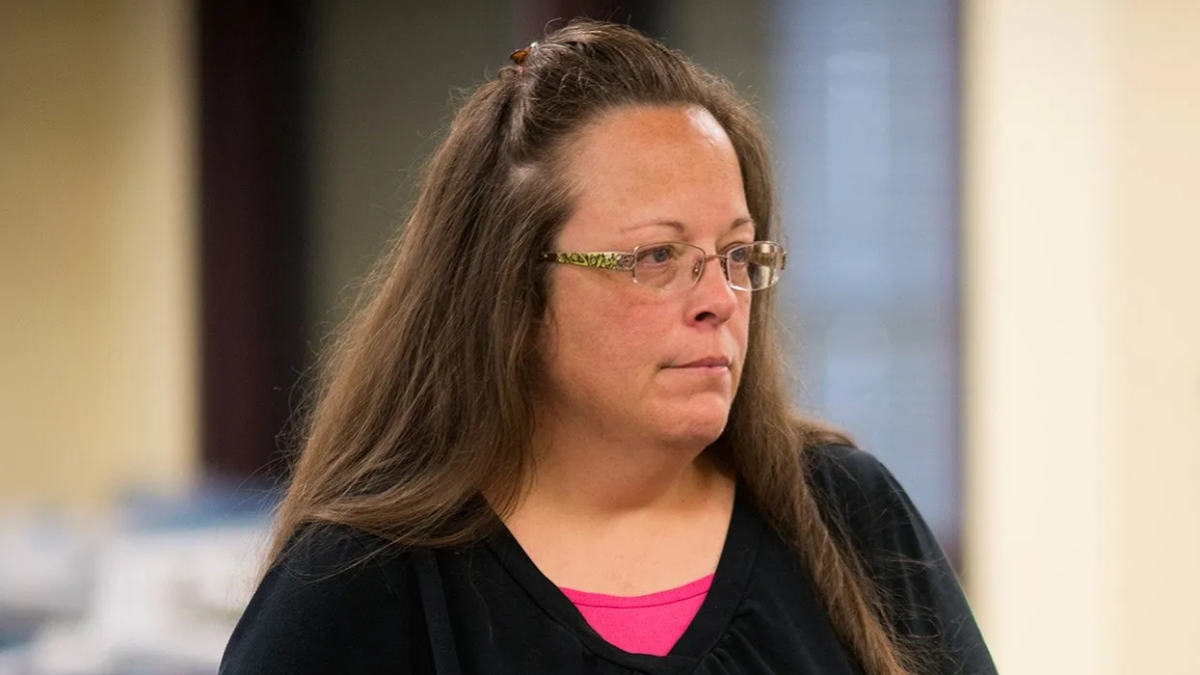When Kim Davis Supreme Court appeal landed on the nation’s radar again this week, it felt like a flashback to 2015 — a headline straight out of a more divided time. The former Kentucky county clerk, once jailed for refusing to issue marriage licenses to same-sex couples, just lost her latest attempt to overturn the decision that changed everything.
The Supreme Court said no. Quietly, firmly, and without comment.
And in that silence, a whole new conversation has started again.
The Case That Once Split the Country — and Never Quite Healed
Kim Davis didn’t set out to be a national lightning rod. But back in 2015, she became exactly that — the small-town clerk at the center of a storm over love, law, and faith. When the Supreme Court legalized same-sex marriage nationwide that year, she refused to issue marriage licenses to gay couples, citing her religious beliefs.
It was the moment that made her both a hero to some and a villain to others. She was jailed for contempt, released to cheers from supporters waving crosses, and scorned by critics who saw her defiance as discrimination wrapped in scripture.
Fast-forward nearly a decade later, and Davis is back in the headlines — this time, not for defying the law but for asking the Supreme Court to rewrite it.
Kim Davis Supreme Court, and a Familiar Rejection
On November 10, 2025, the Supreme Court declined to hear Davis’s petition. She’d asked the justices to review a ruling that ordered her to pay more than $300,000 in damages and legal fees to two same-sex couples she refused to serve.
But her legal team wasn’t just fighting over money. They wanted something much bigger: a second look at Obergefell v. Hodges, the 2015 ruling that legalized same-sex marriage nationwide.
Her lawyers argued that Davis’s religious freedom had been violated — that she was punished for following her faith. But this time, even with a conservative-leaning Court, there were no takers.
As Politico noted, the Court’s refusal came in the simplest possible form: an unsigned order, no commentary, no dissent. Just silence.
And that silence said a lot.
Why This Matters Beyond the Courtroom
Davis’s story isn’t just a legal battle. It’s a cultural mirror — one that keeps showing how deeply America wrestles with questions of faith and equality.
When the Court let the case go, LGBTQ+ advocates exhaled. AP News reported that groups like the Human Rights Campaign saw the decision as a relief — a sign that marriage equality isn’t up for debate again, not yet anyway.
“Equality means following the law, even when you disagree with it,” one advocate said in a statement that quickly went viral on social media.
But for Davis’s supporters, the ruling stung. Many believe she was standing up for religious liberty, not trying to deny others their rights. Some conservative commentators online framed the rejection as proof that “Christian conscience” no longer has a place in public service.
No matter which side you’re on, the case still makes people feel something — and that’s why it keeps resurfacing.

The Money, the Message, and the Memory
Part of what brought this latest chapter to life was money — about $100,000 in damages and another $260,000 in attorney fees Davis was ordered to pay. But the real cost has always been something else: her reputation, her legacy, and the emotional toll of being both praised and vilified.
Her name became shorthand for a national argument about freedom. Even now, nearly ten years later, “Kim Davis” trends online whenever marriage equality or religious freedom come up in political debates.
As People Magazine framed it, “Her case isn’t just about one clerk — it’s about where America draws its moral lines.”
And maybe that’s why this story still feels raw. Because every few years, we circle back to it — and realize how much and how little has changed.
A Culture Still Split Between Faith and Rights
The Court’s decision not to hear Davis’s case doesn’t mean the conversation is over. In fact, it might be the opposite. It’s proof that the question she raised — how far personal beliefs can stretch in a public job — still doesn’t have a clean answer.
It’s easy to forget how personal these cases are. Behind every headline is a human being trying to live out what they believe, in a system trying to protect everyone’s rights.
Sometimes, both sides are right in their own way — and that’s what makes it hurt.
The couples who sued Davis have long said it wasn’t about punishing her; it was about being treated equally. Davis, on the other hand, insists she was never trying to harm anyone, just to stay true to her faith.
And so here we are again — a nation arguing over love and liberty, one headline at a time.
What Comes Next
For now, the Supreme Court’s rejection means Obergefell v. Hodges stands untouched. Same-sex marriage remains the law of the land, and Davis’s legal journey likely ends here.
Still, her case will live on in textbooks, legal blogs, and dinner-table debates — the kind where nobody agrees but everyone remembers.
Because the truth is, whether you see Kim Davis as brave or wrong, she’s become part of America’s cultural DNA. She reminds us that law and faith will always bump heads — and that progress, no matter the direction, always comes with noise.
And maybe that’s the story here. Not the ruling itself, but the way a small-town clerk still has the power to make the whole country stop and think.
Sometimes, the quietest decisions echo the loudest.
Mohit Wagh is the co-founder and feature writer at The Graval, bringing 10 years of experience in celebrity and pop culture reporting. He crafts engaging, fact-driven stories that capture the pulse of what’s trending across Hollywood and beyond.




